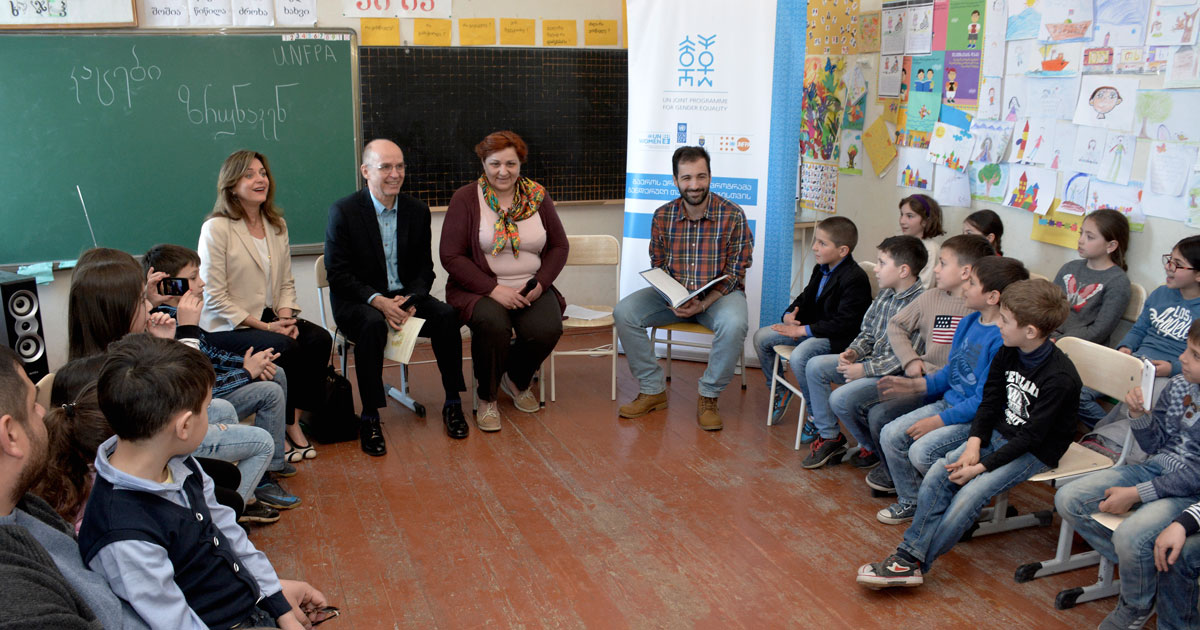
In Telavi, Georgia, MenCare partners held a public book-reading event in April 2017 within the framework of the MenCare campaign. Mr. Karl Kulessa, UNFPA representative in Turkey and the Country Director in Georgia, and Mr. Alexandre Lortkipanidze, a Georgian TV presenter and screenwriter, read stories to primary school students at Telavi Public School #1. The Mayor of Telavi, Mr. Platon Kalmakhelidze, welcomed participants to the event, which was also attended by Ms. Alanna Armitage, Regional Director of UNFPA Eastern Europe and Central Asia on her first official visit to Georgia.
Fathers of school children participated in the event to highlight the importance of men’s caregiving and equal sharing of family duties, and to underscore that gender equality is an important issue not only for women, but also for men and for society at large.
The MenCare campaign in Georgia was launched by UNFPA in partnership with the non-governmental organization We Care in July 2016 within the framework of the United Nations Joint Programme for Gender Equality, funded by the Government of Sweden. Much of the campaign’s success can be attributed to the fact that it was designed based on evidence regarding the socio-cultural context of Georgia.
Men’s equitable involvement in care is critical for the well-being of women, children, families, and society at large. Research findings in Georgia confirm that existing gender stereotypes and established clichés discourage men from taking responsibility and being caring fathers, husbands, partners, and family members. The survey Men and Gender Relations in Georgia, conducted with UNFPA support in 2013, found that the share of men involved in daily caregiving activities such as selecting reading books for their children, discussing their children’s progress and challenges with schoolteachers, helping their children with homework, and washing their clothes, does not exceed 5 percent.